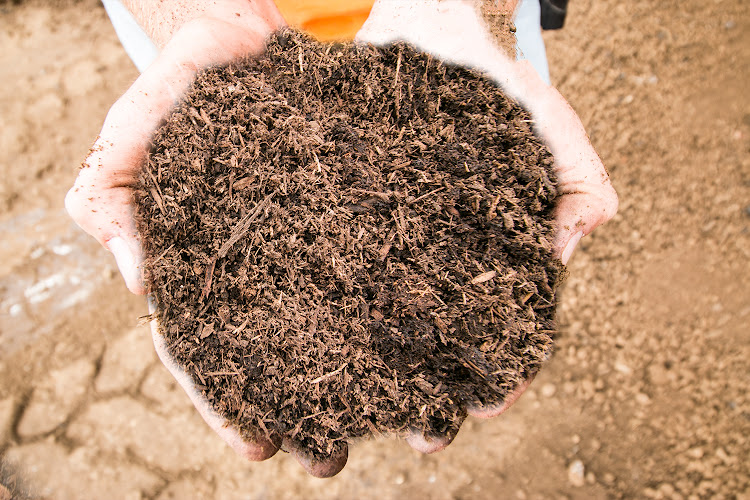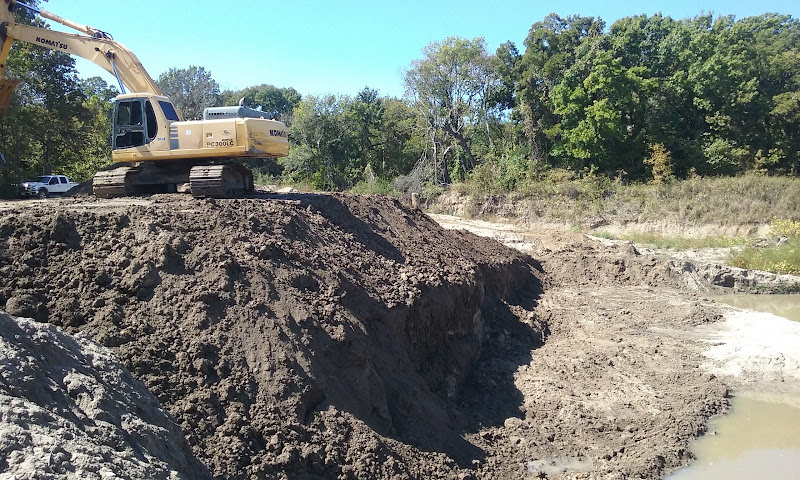Understanding Topsoil Weight
When it comes to working with topsoil, understanding its weight is important for various reasons. Whether you’re a gardener, landscaper, or homeowner, knowing the weight of topsoil can help you plan your projects effectively and ensure the right amount of topsoil is used. In this section, we will explore the importance of knowing the weight of topsoil and factors affecting its weight.
The Importance of Knowing the Weight of Topsoil
Knowing the weight of topsoil is crucial for several reasons. First and foremost, it helps you determine the quantity of topsoil you need for your project. By understanding the weight of a cubic yard of topsoil, you can accurately calculate how much topsoil is required to cover a specific area or fill raised beds.
Furthermore, knowing the weight of topsoil is essential for logistical reasons. When purchasing topsoil, suppliers often charge by the cubic yard or ton. By knowing the weight of topsoil, you can estimate the cost of your project and ensure you’re getting the right amount of topsoil for your budget. For more information on buying topsoil, check out our article on where to buy topsoil in bulk near me?
Factors Affecting the Weight of Topsoil
The weight of topsoil can vary depending on several factors, including its moisture content and the type of topsoil. Here are some key factors that can affect the weight of topsoil:
- Moisture Content: The moisture content of topsoil can significantly impact its weight. Dry topsoil is lighter than moist or saturated topsoil. It’s important to consider the moisture content when calculating the weight of topsoil for your project. For more information on the weight of different moisture levels, refer to our section on weight of dry topsoil, weight of moist topsoil, and weight of saturated topsoil.
- Type of Topsoil: Different types of topsoil can have varying densities, which can affect their weight. Factors such as organic matter content, soil composition, and particle size can influence the density of topsoil. It’s important to consider the type of topsoil you’re working with when estimating its weight. For more information on different types of topsoil, refer to our section on different types of topsoil.
By understanding the importance of knowing the weight of topsoil and considering the factors that affect its weight, you can make informed decisions when it comes to planning and executing your landscaping or gardening projects. Keep these factors in mind when determining how much topsoil you need and ensure you have the right amount for your specific requirements.
Average Weight of Topsoil
When it comes to determining the weight of topsoil, it’s important to consider various factors that can affect its density and moisture content. Understanding the average weight of topsoil can help you make informed decisions when purchasing and handling this essential gardening resource. Let’s explore the weights of dry, moist, and saturated topsoil.
Weight of Dry Topsoil
Dry topsoil refers to topsoil that is completely devoid of moisture. The weight of dry topsoil can vary depending on its composition, but on average, it weighs around 1,000 to 1,300 pounds per cubic yard. It’s important to note that this weight range can differ based on factors such as the type of topsoil and its specific density.
Weight of Moist Topsoil
Moist topsoil contains a moderate amount of moisture, which contributes to its weight. On average, moist topsoil can weigh between 1,200 to 1,600 pounds per cubic yard. The moisture content in the soil adds some extra weight compared to dry topsoil. It’s important to consider the moisture level when calculating the weight of topsoil, as it can impact transportation and handling requirements.
Weight of Saturated Topsoil
Saturated topsoil refers to topsoil that is completely saturated with water. This can occur after heavy rainfall or excessive irrigation. The weight of saturated topsoil can significantly increase due to the water content. On average, saturated topsoil can weigh between 1,800 to 2,500 pounds per cubic yard. The weight increase is primarily due to the added weight of water, which can make saturated topsoil considerably heavier than dry or moist topsoil.
It’s important to keep in mind that these weights are averages and can vary depending on factors such as the specific composition of the topsoil and its moisture content. When calculating the weight of topsoil for your gardening or landscaping project, it’s recommended to consult with a reputable supplier who can provide specific weight information for the type of topsoil you plan to purchase.
For more information on topsoil, including how much you may need for your project and where to purchase it, check out our articles on how much is a yard of topsoil? and where to buy topsoil in bulk near me?.
Calculating Weight of a Cubic Yard of Topsoil
If you’re wondering how much a cubic yard of topsoil weighs, it’s important to understand how to calculate the weight based on the volume. This will help you determine the amount of topsoil you need and ensure a successful landscaping or gardening project.
Determining the Volume of a Cubic Yard
A cubic yard is a unit of measurement used to determine the volume of materials like topsoil. It is equal to a cube with sides measuring 1 yard in length. To calculate the volume of a cubic yard, you need to consider the dimensions of the area you plan to cover with topsoil.
For example, if you have a rectangular area that is 3 yards long, 2 yards wide, and 0.5 yards deep, you can calculate the volume as follows:
Volume = Length x Width x Depth
Volume = 3 yards x 2 yards x 0.5 yards
Volume = 3 cubic yards
In this case, the volume of the area is 3 cubic yards, which will be used in the next step to convert it to weight.
Converting Volume to Weight
The weight of a cubic yard of topsoil can vary depending on its moisture content and composition. On average, dry topsoil weighs about 2,000 pounds per cubic yard. However, it’s important to note that the weight can range from 1,000 to 3,000 pounds per cubic yard.
To determine the weight of a cubic yard of topsoil, you can use the following conversion factors:
- Dry Topsoil: 1 cubic yard = 2,000 pounds
- Moist Topsoil: 1 cubic yard = weight may vary
- Saturated Topsoil: 1 cubic yard = weight may vary
The weight of moist and saturated topsoil can vary due to the moisture content. It is recommended to check with your supplier or refer to their documentation for more precise weight information.
Calculating the weight of a specific volume of topsoil will help you estimate the amount needed for your project and ensure that you have adequate supply. Remember to consider factors such as where to buy topsoil in bulk near me, how much is a yard of topsoil, and how much topsoil do I need to assist you in planning your project effectively.
Variations in Topsoil Weight
When it comes to the weight of topsoil, there can be variations due to different factors. Understanding these variations is essential for anyone looking to purchase topsoil for their landscaping or gardening needs. Two key factors that can affect the weight of topsoil are different types of topsoil and the presence of contaminants and debris.
Different Types of Topsoil
Topsoil can come in various types, each with its own composition and density. The weight of topsoil can vary depending on factors such as the type of soil, its moisture content, and the presence of organic matter. Here are a few examples of different types of topsoil and their average weights:
| Type of Topsoil | Weight per Cubic Yard (lbs) |
|---|---|
| Sandy Soil | 2,200 – 2,500 |
| Loam Soil | 2,300 – 2,700 |
| Clay Soil | 2,400 – 2,800 |
These are general weight ranges and may vary based on specific soil conditions. It’s important to keep in mind that the weight of topsoil can also change depending on its moisture content, as we will explore in the next section.
Contaminants and Debris
Another factor that can affect the weight of topsoil is the presence of contaminants and debris. Contaminants, such as rocks, roots, and other foreign materials, can add weight to the topsoil. Similarly, debris like leaves, twigs, and organic matter may also contribute to the overall weight.
When purchasing topsoil, it’s crucial to ensure that it is free from excessive contaminants and debris. Contaminants can impact the quality of the soil and make it more challenging to work with. Be sure to source topsoil from reputable suppliers who prioritize quality control and provide clean topsoil.
Understanding the variations in topsoil weight due to different types of soil and the presence of contaminants and debris is essential for planning your landscaping or gardening projects. It allows you to make informed decisions about the amount of topsoil you need and the transportation requirements. For more information on purchasing topsoil, visit our article on where to buy topsoil in bulk near me?
Considerations When Purchasing Topsoil
When purchasing topsoil, there are several important considerations to keep in mind. These factors can impact the overall experience of using and managing the topsoil. Here are three key considerations: transportation and delivery, handling and disposal, and cost and budgetary factors.
Transportation and Delivery
Transporting and delivering topsoil can be a significant aspect of the process. Depending on the quantity of topsoil needed, it may require a large vehicle or multiple trips to transport it to your desired location. Some suppliers offer delivery services, which can be convenient and save you the hassle of arranging transportation yourself.
When considering transportation and delivery, it’s important to check with the supplier about any additional costs or requirements. This will help you plan accordingly and ensure a smooth delivery process. If you’re unsure about where to buy topsoil in bulk near you, our article on where to buy topsoil in bulk near me? can provide some guidance.
Handling and Disposal
Once the topsoil is delivered, you need to consider how you will handle and dispose of it. Depending on the quantity, topsoil can be heavy and may require additional labor or equipment to move it around your property. It’s important to have a clear plan in place for spreading and leveling the topsoil to achieve the desired result.
Additionally, if you have excess topsoil after your project is complete, you’ll need to consider proper disposal methods. Some options include reusing it in other areas of your property, donating it to community gardens or local organizations, or contacting your local waste management facility for guidance on proper disposal methods.
Cost and Budgetary Factors
Cost and budgetary factors are essential considerations when purchasing topsoil. The price of topsoil can vary depending on factors such as quality, quantity, and location. It’s recommended to compare prices from different suppliers to ensure you are getting the best value for your money. Our article on how much is a yard of topsoil? can provide some insights into the cost of topsoil.
In addition to the cost of the topsoil itself, it’s important to consider any additional expenses such as transportation, delivery fees, or equipment rental. By accounting for these factors, you can establish a realistic budget for your topsoil project.
Considering these factors when purchasing topsoil will help you make informed decisions and ensure a smooth experience from start to finish. Remember to plan for transportation and delivery, consider the handling and disposal process, and factor in the cost and budgetary aspects. With careful consideration, you can find the right topsoil for your needs and achieve the desired results for your landscaping or gardening project.





